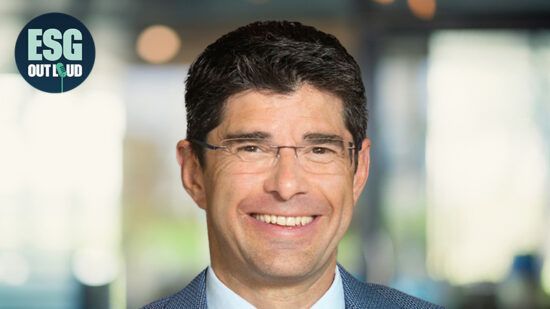If you cast your mind back to the start of the last decade, ESG factors were in their infancy. A few funds had ‘ESG credentials’ or were labelled as an ‘ESG investment’ – but that’s about it. Today it is everywhere – integrated in investment processes, part of the DNA of many firms. Yet, it seems to me that we are at an interesting inflection point in the ESG journey.
As the world continues to warm and the 2015 Paris agreement looks ever less likely to be met, not only have we seen a backlash against ESG investing (for example, from some states in America) but the conversation is also evolving to talk about sustainability, net zero commitments, decarbonisation, portfolio temperature heat maps, natural capital, biodiversity, and land restoration.
Many may think that the definition has become more complex. In reality, however, I think this is really about the need to invest capital to ensure we are creating a world we want to live in. Yes – us – not the next generation. So how do you make sense of it all?
The language we use
ESG becomes incredibly complex when the term is applied to describing an investment thesis, strategy, fund, or product. There are an infinite number of ways to convey a message, so, how can we ensure that we are having the right ESG conversations, and responding to concerns in a considered way? And how does one ensure consistency and compare? Maybe, Artificial Intelligence (AI), which has been described as ‘our latest global threat’, could actually be the right tool to help us develop better frameworks for discussing ESG.
Humans are full of flaws (I know I certainly am) – I love to be told a story, I am a victim of my last conversation, and I suffer from confirmation bias, among myriad others. Least of all, I am most likely far from objective. Here is where I’ve found AI to be hugely helpful. AI has the power to filter, compare and process a vast quantity of information that a human simply cannot, and in a detached, unbiased manner. It can look for patterns and surface key information almost instantaneously.
An AI case study
When we built SOFI, a tool that helps us save time, check messaging, improve delivery, monitor performance and capture questions, we built an ‘ESG lens’ to form part of the analysis in any captured conversation. We used thousands and thousands of hours of conversations to train and calibrate our model.
SOFI allows anyone to record a pitch, presentation, conversation or meeting and then gives detailed ESG analysis, even pulling out all of the related sentences and making sense of them. That in and of itself is hugely helpful. But SOFI allows you to go further – to compare multiple presentations and meetings, dive into the detail and interrogate the data.
Beyond individual encounters, it is also now possible to benchmark the language you use against a much broader dataset. AI can surface example sentences and language associated with ESG sophistication (for example, Article 9 funds) or that falls in the category of ESG 1.0 (for example, exclusions). This brings clarity, but one final critical layer of analysis is still required.
This won’t stop greenwashing
A person can practice and learn to say all of the right things when it comes to E’ ‘S’ and ‘G’ – and tell an amazing story that not only resonates with a listener and hits all of the salient points that an AI tool is looking for to evaluate. But what if what the things the person is saying isn’t accurate, or simply isn’t true? This is a problem that exists today, commonly known as ‘greenwashing’.
I asked ChatGPT to define greenwashing for me and got this response: “It involves marketing efforts to portray a company or its products as environmentally friendly when, in reality, they may not be.”
Here, AI is levelling the playing field. Using AI as a tool by your side, you can ask probing questions, look for examples, and really get into the details and nuances of any ESG related discussion to really establish fact from fiction.
At the end of the day, it is the individual who needs to be convinced about a topic. AI is a tool that can be deployed to help someone make a much more informed decision, providing a level of analysis that was previously not possible to access. In my experience, at every step of a process AI helps me to focus on what truly matters, giving me the ability to make more informed decisions.
Try it for yourself, I think you will be amazed at what you can do.








